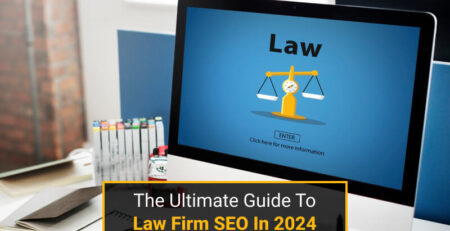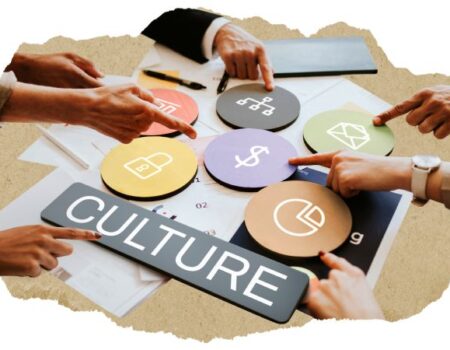Organic Marketing in 2025: Why You Should Think Beyond Paid Ads!
When the word “organic” is mentioned, it often conjures up images of natural, pure, and untouched things—like fresh, wholesome juice. The same concept applies to organic marketing but without the juice.
Organic marketing focuses on attracting your audience naturally, without paying for advertisements. It’s about gaining their attention and loyalty through meaningful, genuine interactions. But how do you stand out in today’s crowded market, especially in 2025?
While times may be challenging, the impact of organic marketing remains unmatched. Success gained through these channels feels more authentic and rewarding when approached correctly.
This guide will explore organic marketing, how it compares to paid options, and how to build a successful strategy.
What is Organic Marketing?
Organic marketing is a strategy that focuses on building awareness of your brand through natural methods, rather than relying on paid promotions. In simple terms, it’s marketing that your audience finds on their own. This can include social media, videos, email campaigns, PR, case studies, blog posts, guest posts, and other types of content.
Organic marketing aims to increase brand awareness and create a genuine connection with your audience by offering educational or entertaining content.
Traditional outbound marketing techniques, like commercials and billboards, no longer have the same impact as they once did. These methods interrupt people’s daily activities, often reaching them when they’re not even considering purchasing.
Organic marketing, however, works differently. It “pulls” people in by making your brand easy to find when they’re actively searching for solutions. This approach attracts buyers who truly need your product or service, even if they don’t make an immediate purchase.
Benefits and Drawbacks of Organic Marketing
What are the benefits of organic marketing? For starters, it creates a more authentic and less intrusive customer experience. It helps establish trust with your audience by providing genuine value and often relies on cost-effective strategies and platforms.
Sounds great, right?
However, the main drawback is that it takes time to see significant results. Blog posts and website pages need time to be crawled and indexed by search engines. Building a social media following or growing an email list requires patience and consistent effort.
Paid marketing, on the other hand, can bypass these delays and deliver quicker results—more on that later.
Organic Marketing Channels
Before we explore the differences between organic and paid marketing, let’s examine some of the most common organic marketing channels.
In reality, almost any platform can be used organically if you focus on content that naturally attracts your audience (without relying on paid ads). However, the following channels are most commonly associated with organic marketing:
- Podcasts
- SEO (Organic Search Engine Marketing)
- Email Newsletters
- Organic Social Media Marketing
- YouTube Videos
- Guest Blogging
- User-Generated Content
- Public Relations/Media Relations
- Blogging
Podcasts
Podcasts offer a unique way to engage with an audience through audio content. You can establish authority and build a loyal following by creating valuable and relevant discussions around topics related to your business or industry. Podcasts allow for deeper storytelling and offer a more personal connection with listeners. They are an effective platform for reaching a broad audience, especially those who prefer consuming content while multitasking. Over time, podcasts can help build trust with listeners, enhance brand visibility, and contribute to long-term relationship-building without relying on paid promotion.
SEO (Organic Search Engine Marketing)
SEO involves optimizing your website to rank higher on search engine results pages (SERPs) through targeted keywords, content, and technical strategies. Organic SEO aims to increase website traffic by improving visibility and actively driving users to search for related products or services. Key strategies include optimizing content, enhancing user experience, building backlinks, and improving website speed. Over time, a well-executed SEO strategy results in long-term, sustainable growth for your website, as it attracts more qualified traffic without the need for paid advertising. However, SEO requires patience and ongoing effort to maintain rankings.
Email Newsletters
Email newsletters are an effective way to maintain direct communication with your audience and nurture relationships over time. By providing valuable, informative, or entertaining content, you can keep your subscribers engaged and informed about your business, products, or services. Regular newsletters help establish trust and credibility with your audience. Organizing an email list ensures that you’re reaching people who have already expressed interest in your brand, making them more likely to convert into loyal customers. With high engagement potential, email marketing is a cost-effective tool for long-term organic growth.
Organic Social Media Marketing
Organic social media marketing involves building a presence on platforms like Facebook, Instagram, Twitter, or LinkedIn without using paid ads. It focuses on sharing engaging content that resonates with your audience, such as posts, images, and videos encouraging likes, shares, comments, and interactions. By creating a consistent and authentic presence, businesses can connect with followers, increase brand awareness, and drive website traffic. Social media allows for real-time interaction and relationship building, making it an essential channel for organic growth. However, success on social media requires consistency and meaningful engagement with your audience.
YouTube Videos
YouTube is a powerful platform for organic marketing due to its massive user base and search functionality. By creating informative, entertaining, or educational video content related to your business, you can attract viewers who are interested in your industry. Videos can potentially go viral, and with proper optimization (titles, descriptions, tags), your content can rank highly on both YouTube and Google search results. Regularly posting high-quality videos can build a loyal following, establish brand authority, and increase visibility. Additionally, YouTube allows businesses to showcase products, services, or expertise, making it an invaluable tool for organic marketing.
Guest Blogging
Guest blogging involves writing content for other websites or blogs in your industry. You can showcase your expertise and reach a new audience by contributing valuable articles to reputable sites. Guest blogging allows you to build backlinks to your own website, which improves SEO and drives traffic. It also establishes your brand as an authority in your field. Additionally, guest blogging can foster relationships with other influencers or businesses in your industry. It’s a great way to expand your network and grow your online presence organically, with the added benefit of increased exposure and trust-building.
User-Generated Content
User-generated content (UGC) refers to content your customers or followers created, such as reviews, photos, or testimonials. Encouraging your audience to create content related to your brand adds authenticity and credibility to your marketing efforts. UGC can be shared across social media, websites, and marketing campaigns, amplifying your reach and boosting engagement. It acts as social proof, showing potential customers that others trust and enjoy your products or services. By fostering a community where users feel valued and heard, UGC can build stronger relationships with its audience and create a sense of loyalty.
Public Relations/Media Relations
Public relations (PR) and media relations involve managing your brand’s image and reputation through strategic communication with the press, influencers, and media outlets. Positive media coverage, interviews, and features help increase your brand’s visibility and credibility. PR efforts aim to position your business as an industry leader or expert, earning the trust of potential customers. Effective PR campaigns can generate organic buzz, foster relationships with journalists and media professionals, and ensure your brand is seen positively across various platforms, including online news, blogs, and industry publications.
Blogging
Blogging is a cornerstone of organic marketing, allowing businesses to share valuable content with their audience. Regularly publishing blog posts on topics relevant to your industry or audience helps increase website traffic, improve SEO rankings, and position your brand as a thought leader. Blogs offer opportunities to engage with readers through comments, encourage social sharing, and provide valuable information that drives action. Consistent, high-quality blogging establishes trust with your audience. Over time, it helps create a loyal readership that can turn customers or brand advocates without relying on paid promotions.
Partner with our Digital Marketing Agency
Ask Engage Coders to create a comprehensive and inclusive digital marketing plan that takes your business to new heights.
Contact Us
Is Organic Marketing Still Effective in 2025?
Organic marketing continues to be a valuable tool, but with changing dynamics, achieving results has become more challenging.
The internet has transformed into a global marketplace, meaning competition isn’t just local. Even businesses that can’t physically reach your customers now have the power to target them online. With such high competition for attention and platforms pushing monetization, gaining organic results like traffic, engagement, and growth has become tougher. Algorithms and content saturation often hide great content, causing even the best solutions to get overlooked.
Paid marketing works to break through the noise and place a brand in front of its audience, but it comes with a cost — and not every business has the budget for it.
A balanced approach works best. Organic marketing should be the foundation, with paid marketing strategically enhancing it. Sometimes, paid methods can help establish the initial foundation, or organic efforts can guide the paid strategy.
Regardless of the approach, a clear strategy is essential to drive success.






